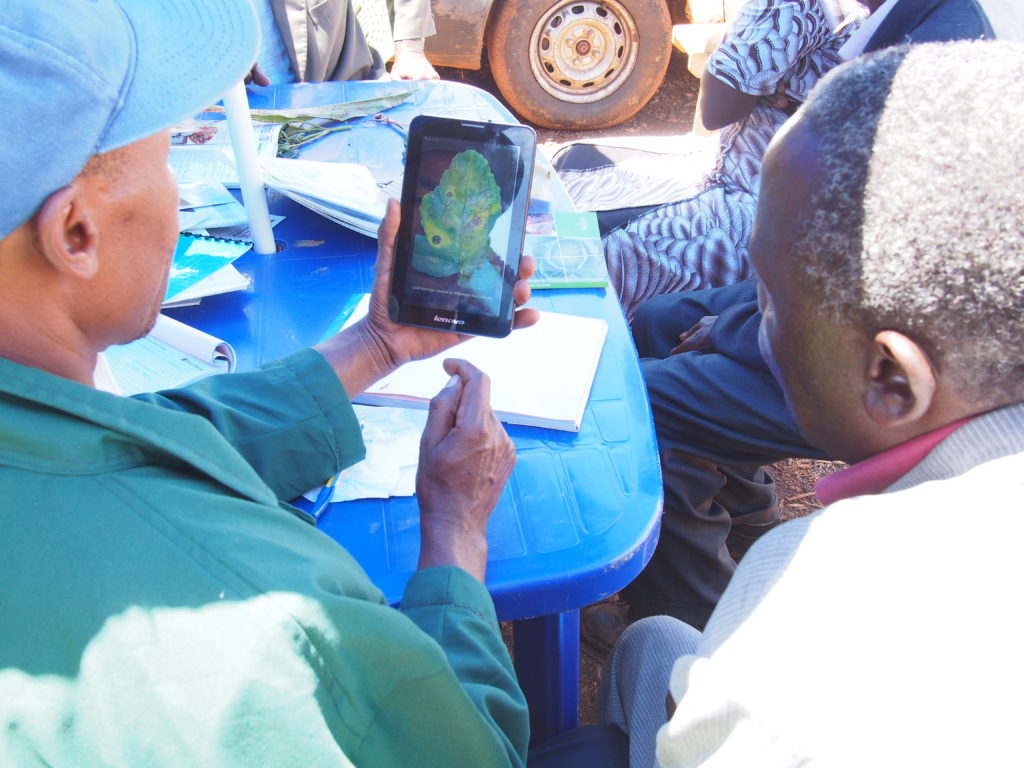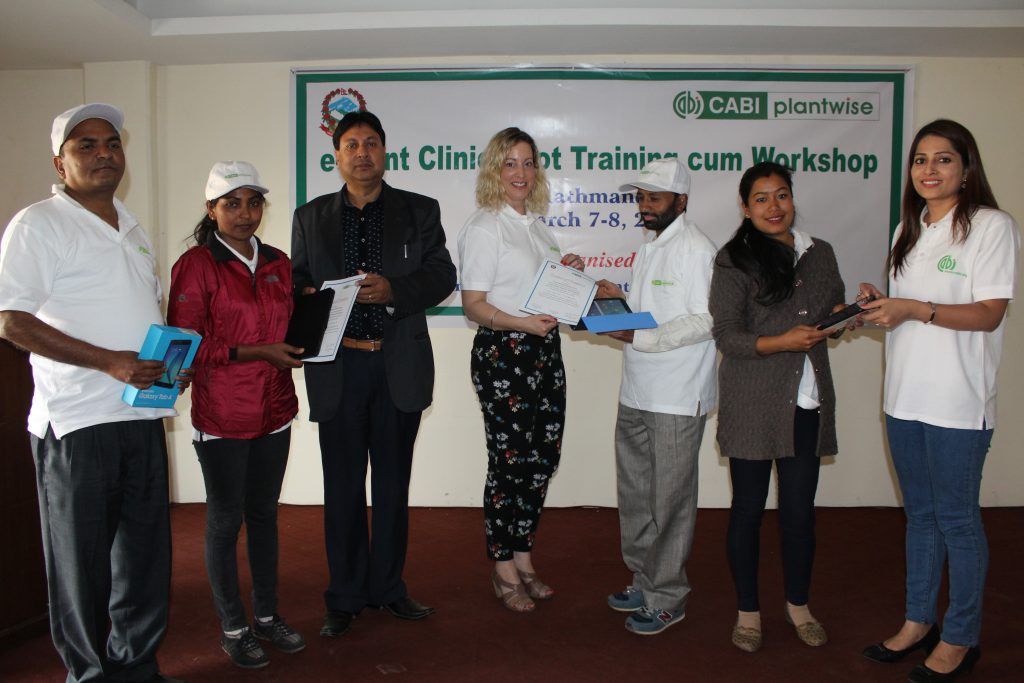Plant Clinics and Farm Visits Diagnosing Fall Armyworm in Malawi
Mr. Guze Kampinga visits the plant clinic at Dowa Turn Off with his damaged maize samples and is received by Mrs Eluby Phiri a trained plant doctor. “I have grown about 0.8 ha of rain-fed and 0.4ha irrigated maize (Ndimba). This year a strange pest has seriously damaged my maize and almost all people in…
Plantwise Annual Report 2016 released
The Plantwise Annual Report is an update on the programme, listing key highlights along with details on progress, lessons learned and next steps for each of the three programme components: Plant Health Systems Development, the Knowledge Bank and Monitoring & Evaluation. Highlights include (cumulative numbers): 9.8 million farmers have been reached directly and indirectly through…
Reaching more farmers with innovative early morning plant clinics
It is generally accepted that early morning is the best time to learn and retain new information. As the saying goes: “the early bird gets the worm.” This long-held belief is being applied in Vavuniya, Sri Lanka, where plant clinics are now conducted at the crack of dawn. The plant clinics are a platform for…
Plantwise Ghana Educates Farmers on Major Crop Pest and Diseases
As part of its mass extension activities for 2016, Plantwise Ghana rolled out a four-week radio campaign to educate farmers about the detection and management of crop pests and diseases prevalent in the project’s five intervention regions in Ghana. The campaign, which took place between September and October 2016, involved five radio stations noted for…
Shifting gears: expansion of e-plant clinics in Kenya
“No matter where you’re from, your dreams are valid!” Passionate words spoken in 2014 during an indelible Oscar moment. The utterance of these words, coupled with the winning of an Academy Award, announced Lupita Nyong’o’s entry into the global stage. Two years later in Lupita’s country of origin, Kenya, long-held dreams in the plant health…
Successful e-Plant Clinic launch in Nepal
E-plant clinic training commenced in Pokhara, Nepal, today, after a successful launch in Kathmandu earlier this week. ICT intervention for the country is funded by the Centre for Applied Crop Science (CACS), UK Government and training was inaugurated in Kathmandu by Dr. Suroj Pokharel, Secretary, Ministry of Agricultural Development and chaired by Sh. Dila Ram…
Challenges and Opportunities for Women Farmers in Nepal
In developing countries, rural women play a significant role in agriculture, accounting for 60-80% of food production and selling food products at markets [1]. In Nepal, it’s been reported that up to 98% of women are employed in the agricultural sector, a percentage which is higher than that for men (91%) [1b]. Contribution by women…
CABI argues for stronger links between rural advisory services and research, private sector and ICTs
At a meeting of the world’s top agricultural scientists in China, CABI’s Executive Director for Global Operations, Dr Ulrich Kuhlmann, stressed the key role rural advisory services play in lifting agricultural communities out of poverty. As he pointed out, “Some of the most relevant and appropriate information isn’t high tech or innovative, but that doesn’t…
Plant Doctor wins best Agricultural Extension Agent award in Ghana
Contributed by Solomon Duah, CABI Ghana Paul Gyedu, a plant doctor working with the Plantwise program in Ghana, has been awarded the Ashanti region Agricultural Extension Agent (AEA) of the Year Award. Paul works for the Ministry of Food and Agriculture and combines his work as an extension agent with plant clinic operations in the Bekwai…
International students graduate with Masters degree in crop management
A graduation ceremony took place on 17 November 2016, in Interlaken, Switzerland, to mark the successful completion of the 2016 Masters of Advanced Studies in Integrated Crop Management (MAS ICM) programme. The 12 agricultural professionals who participated in this year’s programme have gained valuable knowledge in sustainable crop management to apply back home and to…



